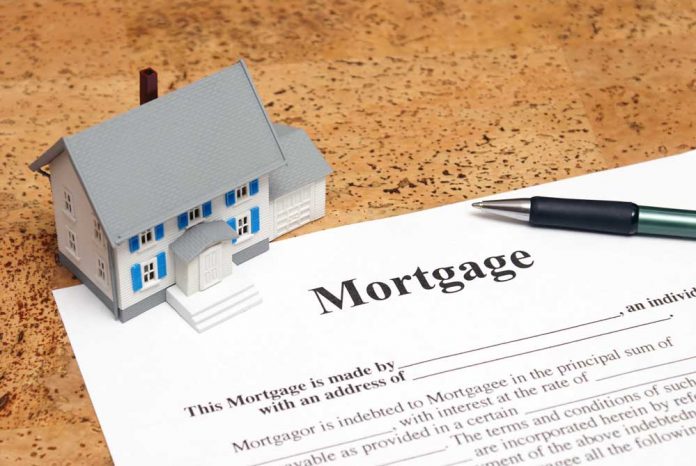This article is written by Darshi Hetal Jhaveri, pursuing Certificate Course in Advanced Civil Litigation: Practice, Procedure and Drafting from LawSikho.com.
Table of Contents
Introduction
A mortgage can be described as a loan lent to a person in favour of an immovable property that acts as a security. There are various types of mortgages and the terms and conditions of the mortgage depend on the chosen type of mortgage. In case, the mortgage amount is not reimbursed then there are certain remedies available. The remedy that is elaborated in this particular article, talks about the order to file a suit for sale of the immovable property. Once the decree is passed of the suit for sale in the favour of the plaintiff then the sale amount that is obtained is used to pay the mortgage money.
This particular article describes, what a mortgage is? How many types of mortgages exist under Indian law? What happens when an immovable property is mortgaged and the person refuses or couldn’t pay back the amount lent to him? What procedure to follow in court and how to obtain the decree for sale to sell the immovable property?
Defining mortgage
Mortgage refers to the lending of immovable property as a security in exchange for monetary benefits for a pre-discussed period at a pre-discussed rate of interest. Once the monetary benefits availed have been reimbursed along with the discussed interest the immovable property. A mortgage is a way of loan in which an immovable property acts as a guarantee in favour of money that is a way of a loan. In simpler terms, mortgaged property is an immovable property that acts as a security against the money received by the way of a loan.
The person who mortgages his immovable property for a sum of money is known as the mortgagor. The person from whom the mortgagor borrows money for which the immovable property acts as security is known as the mortgagee.
In simpler words, the mortgagee is the lender whereas, the mortgagor is the borrower. The sum of the principal amount along with the interest amount is known as mortgage money.
The lawful agreement or instrument through which the transactions of a mortgage take place is known as a mortgage deed.
Types of mortgages
Under Section 58 of the Transfer of Property Act, 1882, there are six types of mortgages.
1. Simple mortgage
In a simple mortgage, the mortgagor is personally liable to reimburse the loan amount along with interest. In case the payment has not been paid by the mortgagor two remedies are available to the mortgagee. The first one being obtaining a money decree for the sale of the mortgaged property. The second one is obtaining the decree for the sale of the mortgaged property.
2. Mortgage by the conditioned sale
As the name suggests, this mortgage is conditioned. The conditions are such that;
- The mortgagor will sell the property on a pre-decided date if the payment has defaulted until that particular date. Thus, the sale shall be considered absolute or;
- On the payment of the mortgage money on the specific date, the sale of the immovable property shall become null and void or;
- The mortgagor shall transfer the immovable property back to the mortgagee on the payment of the mortgage money.
3. Usufructuary mortgage
In a usufructuary mortgage, the mortgagor delivers his property possession to the mortgagee, and all the revenue generated from the property through rent or interest is availed by the mortgagee. The mortgagor will receive his property back after the payment of the mortgage money.
In this type of mortgage, there is no liability of the mortgagor nor any remedy of decree for sale or foreclosure in case of non-payment by the mortgagor. However, the right to possession and the revenue generated from the property is of the mortgagee until the loan is reimbursed.
4. English mortgage
In an English mortgage, the mortgagor personally guarantees to pay back the mortgage money at a pre-decided date. Until that period the mortgagor transfers the mortgaged property to the mortgagee and retransfers the same after the payment of the loan amount of mortgage.
5. Mortgage by deposit of title sale
In this type of mortgage, the mortgage of the immovable property acts as a security. However, the possession of the property is not given in this mortgage; only the title of the property is transferred. The applicable remedy to receive the payment of the mortgage money is a suit for sale.
6. Anomalous mortgage
A mortgage that is not a simple mortgage or an English mortgage or a mortgage by usufructuary mortgage or a mortgage by deposit of title deed or a mortgage by conditional sale is called an anomalous mortgage. It is not defined yet, but this mortgage is generally customized as per the situation.
Section 59 of the Transfer of Property Act, 1882 states the registration of a mortgage. It states that “where the principal money secured is one hundred rupees or upwards, a mortgage 5 [other than a mortgage by deposit of title deeds], can be effected only by a registered instrument signed by the mortgagor and attested by at least two witnesses. Where the principal money secured is less than one hundred rupees, a mortgage may be effected either by [a registered instrument] signed and attested as aforesaid, or (except in the case of a simple mortgage) by delivery of the property.”
What is a decree for sale?
A decree for sale is a final judgment passed by the hon’ble judge with regards to the mortgage suit. A decree for sale is filed by the mortgagee if the mortgagor fails to repay the mortgage money within the decided period. After the period is due the mortgagee can claim to sell the mortgaged property to obtain his money back. In simpler terms, to avail the mortgage money, the mortgagee has to sell his property. But, to sell the property, the mortgagee needs the permission of the court and the permission is obtained by filing a mortgage suit.
Remedies available to redeem the mortgage money
If the mortgagor does not repay the mortgage money, there are several lawful remedies available to the mortgagee to redeem the money. These remedies are explained under the Order 34 of the Code of Civil Procedure, 1908. . They are as follows-
1. Foreclosure suit
Filing for a foreclosure suit is the foremost remedy a mortgagee generally applies for. A foreclosure suit refers to the suit in which the plaintiff lawfully takes possession of the mortgaged property when the defendant constantly fails to repay the mortgage money.
2. Suit for sale
To obtain the mortgage money back, the immovable mortgaged property of the defendant is sold off and the plaintiff recovers the money back.
3. Recovery of balance due in the suit for sale
This suit is filed to recover the sum of the mortgage money that is not sufficient even after selling the mortgaged property of the defendant. The balance is recoverable after selling the other properties of the defendant.
How to obtain a decree of sale?
1. The parties to the suit
Under Rule 1 Order XXXIV of Code of Civil Procedure, 1908, the parties to the suit have been mentioned.
- Mortgagor,
- Mortgagee,
- Co-mortgagors, or any person who has an interest in or charge upon the mortgaged property.
- Or any person, who has a right of redemption of the mortgaged property.
Under Rule 4 of Order XXXIV of Code of Civil Procedure, 1908, if the mortgagor doesn’t pay the mortgage money once the due date has passed. Then the alternative available to the mortgagee is to file a suit for sale of the immovable mortgaged property. If the plaintiff succeeds in this process, then the hon’ble court shall pass a preliminary decree for the sale of the suit.
2. Preliminary decree for sale of suit
Once the suit has been filed, and the plaintiff succeeds in proving the court directs to take an account of the sum that is due to pay at the date of the decree. The sum shall include-
- The mortgage money;
- The cost of the suit, if any;
- Any other cost that may be incurred to him concerning the immovable property.
Once the amount has been declared to the court, the court passes a decree for the defendant to pay the amount so declared on or before the date as the court may have fixed within six months from the date on which the court confirms and countersigns the account taken. Further, if there is a default in payment then the plaintiff shall be entitled to apply for a final decree for the sale of the property.
Rule 4 sub-rule 4 states that the person receiving the benefits of the title of the decree for sale shall also be a party to the suit. It provides for the adjudication of the respective rights and liabilities of the parties to the suit and form outlined in Form No. 9, Form No. 10, or Form No. 11, as the case may be, of Appendix D with such variations as the circumstances of the case may require.
3. Final decree for sale of suit
When the defendant pays the mortgage amount of the suit before the confirmation of sale made in the final decree, then the court shall file a final decree ordering the plaintiff to return the documents related to the mortgaged property; transferring the property back to the defendant; and put the defendants back in the possession of the property.
If the immovable mortgaged property has already been sold, then the defendant has to deposit 5 per cent of the amount of purchase money paid into the court by the purchaser. After the deposit of the amount by the plaintiff, the purchaser is entitled to have his money repaid by the court.
When the payment has not been made after the due date by the preliminary decree, then the court shall pass a final decree ordering to sell the immovable property or part of the property of the defendant to recover the mortgage money.
Conclusion
By now, we know that there are two steps to obtain a decree for the sale of the mortgaged property. First is when the mortgagor does not pay the money after the due date, the mortgagee has to file a suit for the sale of the mortgaged immovable property. If the mortgagee succeeds, the court will pass a preliminary decree against the mortgagor. He then has to pay the money back within a stipulated time. Second, if the mortgagor again makes a default in payment, the mortgagee would be entitled to apply for a final decree for the sale of the property. It is the final decree where the court orders for the sale of the immovable property or a part of it to recover the money due to the mortgagee. The remedy of suit for sale is available when the mortgagor doesn’t pay back the mortgage money, A suit for sale of the mortgaged property can be filed against him as a remedy and it is also studied about how the decree of suit for sale is obtained.
References
- https://www.indiacode.nic.in/bitstream/123456789/2338/1/A1882-04.pdf
- https://blog.ipleaders.in/sell-mortgaged-property
- https://www.aaptaxlaw.com/code-of-civil-procedure/order-xxxiv-code-of-civil-procedure-rule-1-2-3-4-5-6-7-suits-relating-to-mortgages-of-immovable-property-order-34-of-cpc-1908-code-of-civil-procedure.html
Students of Lawsikho courses regularly produce writing assignments and work on practical exercises as a part of their coursework and develop themselves in real-life practical skills.
LawSikho has created a telegram group for exchanging legal knowledge, referrals, and various opportunities. You can click on this link and join:
 Serato DJ Crack 2025Serato DJ PRO Crack
Serato DJ Crack 2025Serato DJ PRO Crack











 Allow notifications
Allow notifications


